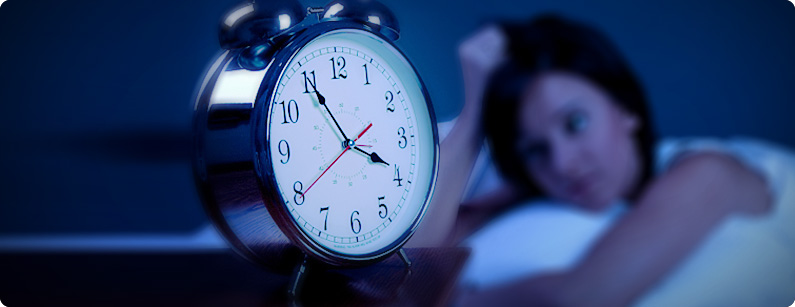Just bear in mind, insomnia and other sleeping problems are rarely just about lack of sleep. There are often underlying issues which need dealing with.

Dear Karen
I suffer from insomnia. I’ve had sleeping problems on and off since I was a teenager – I’m now in my forties – but over the last year it’s been getting a lot worse. I fall asleep all right at night but I wake up in the early hours and can’t get back to sleep. My doctor prescribed sleeping pills for my sleeping problems but they made me it so hard for me to wake up in the mornings.
I also suffer from anxiety and I worry about all sorts of things when I wake up in the middle of the night. Sometimes I get heart palpitations. I’ve tried getting up, reading, listening to the radio and cutting down on tea and coffee and alcohol before bed, but nothing seems to work and it’s really affecting my life now. It’s so hard holding down a full-time job when you can’t concentrate and you’re so tired you feel like a zombie. Any advice would be very much appreciated.
From Sue, London
Hi Sue
I too have had periods when I’ve struggled to get a full night’s sleep and they usually coincide with stressful or challenging times in my life. Sometimes they’ve required a change in lifestyle to remedy the problem but it’s not always necessary to take such a radical approach. Sometimes, our broken sleep routine is just a pattern which needs interrupting. I’ve seen insomnia sufferers who wake at 3.16am every morning without fail and who probably fall back to sleep at the same time (often several hours later and without being aware of it). Behind the scenes, there is usually an anxious mind, busying away in the background, reminding us of all the awful things which might go wrong. This is called ‘catastrophising’ and is exactly what it says on the tin.
It sounds like this could be your problem as you are experiencing heart palpitations, often a symptom of stress. To be on the safe side, it’s a good idea to visit your GP if you have any physical symptoms like this to rule out anything other than stress which might need investigation or medication.
There are certain other measures you can take relating to what’s described as ‘sleep hygiene’, which is about the environment in which you sleep. Is you bed comfortable? Is it the right temperature? Is there any ambient noise or light disturbing you? Does your partner snore or fidget?
Once you’ve made sure everything is cosy, comfy and just right. And you’ve had a check-up. And you’re still awake in the night. It’s time to call in the hypnotherapy reinforcements if you don’t want to lose all concentration and spend your days like a zombie. Sleep deprivation is a form of torture for good reason. It sends us all a bit bonkers (just ask any new parent). Bear in mind also, reading, drinking tea, watching telly, reading a book or doing housework simply stimulate you into wakefulness and don’t generally help.
There’s nothing I know better than self hypnosis for sorting out insomnia. In fact, if you check out my ‘Self Hypnosis for Insomnia’ session, it will bore you into sleeping for longer stretches than you might have thought possible. This can serve as a sticking plaster but not resolve deeper rooted anxiety issues which may need further therapy (or another kind of audio session). But the sticking plaster can also facilitate sufficient rest and recovery to energise and restore resources so you can resolve anxieties from a more rational perspective.
Just bear in mind, sleeping problems are rarely just about lack of sleep. There are often underlying issues which need dealing with. Otherwise you wouldn’t be laying awake half the night thinking about them. So take a good look at what’s not working in your life and think about what you can do to put it right or manage it. Your own ability to sort out these underlying issues could well work way better than a sleeping pill and make a real difference to your sleeping problems. Sweet dreams….
